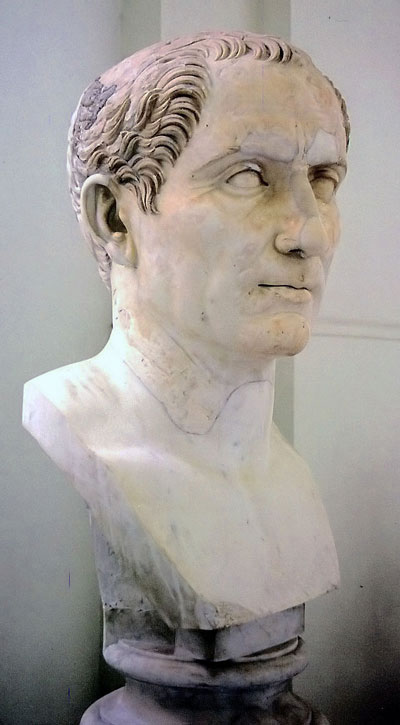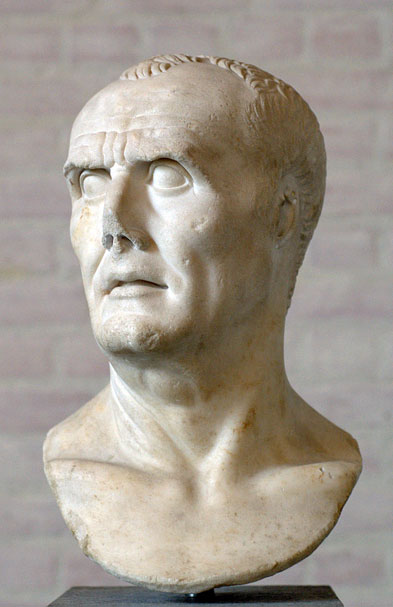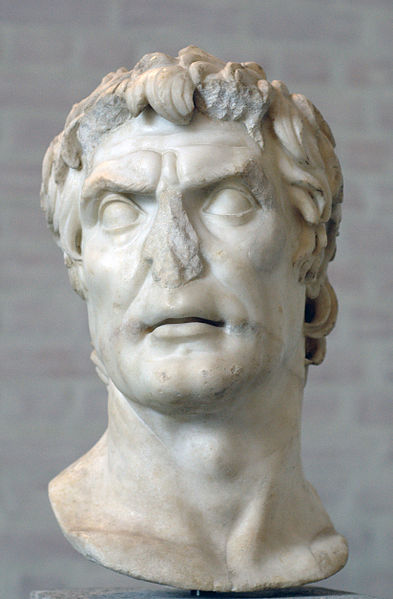or else keep them entire in some urn and reliquary,
Original French: ou aultrement les reſerver entieres en quelque vrne, & reliquaire:
Modern French: ou aultrement les reserver entières en quelque urne, & reliquaire:
Original French: ou aultrement les reſerver entieres en quelque vrne, & reliquaire:
Modern French: ou aultrement les reserver entières en quelque urne, & reliquaire:
Original French: & vouluſsiez les cendres de vos femmes, ou peres boyre en infuſion de quelque bon vin blanc,
Modern French: & voulussiez les cendres de vos femmes, ou pères boyre en infusion de quelque bon vin blanc,
Original French: qui faiſoient bruſler les corps mors de leurs parens & ſeigneurs,
Modern French: qui faisoient brusler les corps mors de leurs parens & seigneurs,
Book 3, Chapter 8: The Romans, because the dead corps, that died in battel, were after their burial digged out of the ground, instituted the manner of burning the carcases of men departed, which Rite was executed on Sylla, chief of all the house and kindred of the Cornelians, which feared lest he should be served as he had used Marius.
D’après César, De bello gallico, VI, 19. Rabelais a déjà fait allusion à ce passage, ch. III., l. 14.
Rabelais va traiter de la crémation. On admettait au XVIe siècle que cet usage remontait à Scylla (P. Vergile, De Inventous rerum, III, x). Pour les Druids, cf. plus bas, III, 17.
César, De bello gallico, VI, xix; voir III, p. 361.
negatur cremari posse in iis qui cardiaco morbo obierint, negatur et veneno interemptis; certe exstat oratio Vitelli qua Gnaeum Pisonem eius sceleris coarguit hoc usus argumento, palamque testatus non potuisse ob venenum cor Germanici Caesaris cremari. contra genere morbi defensus est Piso.
It is stated that at the cremation of persons who have died of heart disease the heart cannot be burnt, and the same is said of persons that have been killed by poison; undoubtedly there is extant a speech of Vitellius that employs this argument to prove Gnaeus Piso guilty of poisoning,b and explicitly uses the evidence that it had been impossible to cremate the heart of Germanicus Caesar on account of poison. In reply Piso’s defence was based on the nature of the disease.
Original French: & aultres Romains empereurs
Modern French: & aultres Romains empereurs
Au sens du latin imperatores, commandants en chef. D’après Pline, VII, 54, l’usage de la crémation daterait de l’époque de Sylla.
Ipsum cremare apud Romanos non fuit veteris instituti; terra condebantur. at postquam longinquis bellis obrutos erui eognovere, tunc institutum. et tamen multae familiae priscos servavere ritus, sicut in Cornelia nemo ante Sullam dictatorem traditur crematus, idque voluisse veritum talionem eruto C. Mari cadavere. [sepultus vero intellegitur quoquo modo conditus, humatus vero humo contectus.] [Secl. Mayhoff]
Cremation was not actually an old practice at Rome: the dead used to be buried. But cremation was instituted after it became known that the bodies of those fallen in wars abroad were dug up again. All the same many families kept on the old ritual, for instance it is recorded that nobody in the family of the Cornelii was cremated before Sulla the dictator, and that he had desired it because he was afraid of reprisals for having dug up the corpse of Gaius Marius. [But burial is understood to denote any mode of disposal of a corpse, but interment means covering up with earth.]

Bust of Gaius Julius Caesar in the National Archaeological Museum of Naples
[Article mentions Sulla, Marius, and Caesar] Gaius Julius Caesar (100 – 15 March 44 BC) was a Roman general, statesman, Consul, and notable author of Latin prose. He played a critical role in the events that led to the demise of the Roman Republic and the rise of the Roman Empire. In 60 BC, Caesar, Crassus, and Pompey formed a political alliance that was to dominate Roman politics for several years. Their attempts to amass power through populist tactics were opposed by the conservative ruling class within the Roman Senate, among them Cato the Younger with the frequent support of Cicero. Caesar’s victories in the Gallic Wars, completed by 51 BC, extended Rome’s territory to the English Channel and the Rhine. Caesar became the first Roman general to cross both when he built a bridge across the Rhine and conducted the first invasion of Britain.

Because of many common details with the so-called « Sulla » (proportions, open mouth, large eyes), it is advanced that both statues (brothers, adversaries?) were concieved and exhibited together.
Gaius Marius (157 BC – 86 BC) was a Roman general and statesman. He held the office of consul an unprecedented seven times during his career. He was also noted for his important reforms of Roman armies, authorizing recruitment of landless citizens, eliminating the manipular military formations, and reorganizing the structure of the legions into separate cohorts. Marius defeated the invading Germanic tribes (the Teutones, Ambrones, and the Cimbri), for which he was called “the third founder of Rome.” His life and career were significant in Rome’s transformation from Republic to Empire.
Sylla [or Sulla] is also mentioned later in this chapter for being “unable to burn a wooden tower constructed for purposes of defence, although it had been surrounded with fire on every side, because Archelaus had smeared it with alum.”

Lucius Cornelius Sulla Felix (c. 138 BC – 78 BC)
Ipsum cremare apud Romanos non fuit veteris instituti; terra condebantur. at postquam longinquis bellis obrutos erui eognovere, tunc institutum. et tamen multae familiae priscos servavere ritus, sicut in Cornelia nemo ante Sullam dictatorem traditur crematus, idque voluisse veritum talionem eruto C. Mari cadavere. [sepultus vero intellegitur quoquo modo conditus, humatus vero humo contectus.] [Secl. Mayhoff]
Cremation was not actually an old practice at Rome: the dead used to be buried. But cremation was instituted after it became known that the bodies of those fallen in wars abroad were dug up again. All the same many families kept on the old ritual, for instance it is recorded that nobody in the family of the Cornelii was cremated before Sulla the dictator, and that he had desired it because he was afraid of reprisals for having dug up the corpse of Gaius Marius. [But burial is understood to denote any mode of disposal of a corpse, but interment means covering up with earth.]
A fight with several lions at once was first bestowed on Rome by Quintus Scaevola when consular aedile, but the first of all who exhibited a combat of 100 maned lions was Lucius Sulla, later dictator, in his praetorship [93 BC]. After Sulla, Pompey the Great showed in the Circus 600, including 315 with manes, and Caesar when dictator 400.
Book 3, Chapter 8: The Romans, because the dead corps, that died in battel, were after their burial digged out of the ground, instituted the manner of burning the carcases of men departed, which Rite was executed on Sylla, chief of all the house and kindred of the Cornelians, which feared lest he should be served as he had used Marius.
Pliny vii. 54, § 55; Plutarch, Caes. 68.
Sulla
L’usage de la crémation se répandit à Rome à partir de Sylla selon Polydore Vergile (De rerum inuentorivus, III, 10), Cœlius Rhodiginus (Antiquae Lectiones, XVII, 20 et 21), Alexander ab Alexandro (Geniales Dies, III, 2), etc.
Lucius Cornelius Sulla Felix (c. 138 BC – 78 BC), known commonly as Sulla, was a Roman general and statesman. He had the distinction of holding the office of consul twice, as well as reviving the dictatorship. Sulla was awarded a grass crown, the most prestigious and rarest Roman military honor, during the Social War. His life was habitually included in the ancient biographical collections of leading generals and politicians, originating in the biographical compendium of famous Romans, published by Marcus Terentius Varro. In Plutarch’s Parallel Lives Sulla is paired with the Spartan general and strategist Lysander.
In older sources, his name may be found as Sylla. This is a Hellenism, like sylva for classical Latin silva, reinforced by the fact that two major ancient sources, Plutarch and Appian, wrote in Greek, and call him Σύλλα.
Original French: Si nous eſtions du temps de
Modern French: Si nous estions du temps de
Original French: ne le croyroient poſsible.
Modern French: ne le croyroient possible.